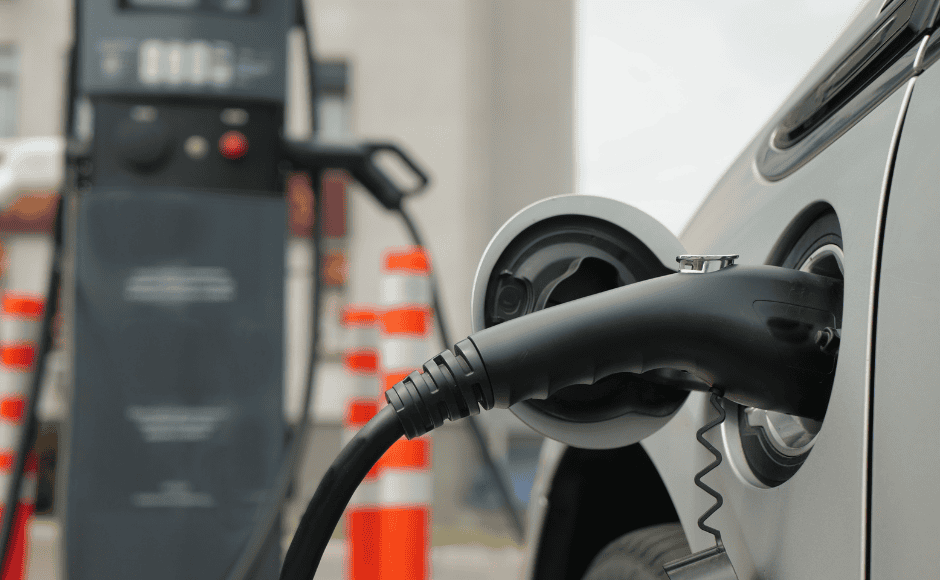
If you are considering purchasing an electric vehicle (EV), understanding how and where to charge your EV is crucial to making the switch confidently. Here’s a breakdown of some essential information:
EV charging levels
- Level 1 (120V) chargers plug into standard alternating current (AC) household outlets, adding about 3–5 miles of range per hour. They are ideal for overnight charging and short daily commutes.
- Level 2 (240V) chargers require a dedicated 240V AC outlet, like those used for dryers, and add approximately 25–40 miles of range per hour, making them suitable for most daily driving needs.
- Level 3 (direct current (DC) fast charging) chargers are found at public charging stations and can add 100–300+ miles of range in about 30 minutes, depending on the vehicle. They are not typically installed in homes due to high costs.
Charging connectors
Compatibility is an essential consideration when it comes to EV charging. Different EVs have different types of connectors. Ensure your electric vehicle’s charging port matches the connectors at the stations you plan to use.
- SAE J1772 (Type 1) connectors are standard for Level 1 and Level 2 charging in North America
- Combined Charging System chargers support both AC charging and DC fast charging
- CHAdeMO chargers are used by some manufacturers for DC fast charging
- North American Charging Standard chargers were developed by Tesla and are now being adopted by other manufacturers
Charging costs
Charging costs vary based on location and charging method:
- Home charging: On average, US households pay about 16 cents per kilowatt-hour (kWh). Charging an EV at home averages around $64 per month.
- Public charging: Costs can be higher, especially at DC fast-charging stations, which may charge up to 50 cents per kWh. Some public chargers are free, but they’re less common.
Finding charging stations
There are several websites and apps that can help you locate EV charging stations. A few options include:
- PlugShare provides real-time information on charger availability and user reviews.
- ChargePoint offers a network of charging stations with details on pricing and availability.
Home charging setup
Most EV owners charge their vehicles at home, especially overnight. Installing a Level 2 home EV charger can cost between $750 and $1,750, depending on electrical system requirements and installation complexity. Some utilities offer incentives or rebates to offset these costs.
Understanding the basics of EV charging can ease the transition to electric driving. With the growing infrastructure and advancements in technology, charging your EV is becoming more accessible and convenient.
Get affordable financing for a home EV charger with Michigan Saves
If you live in Michigan and you’re ready to switch to an EV, you can get financing for a home EV charger with Michigan Saves, the nation’s first nonprofit green bank. We can also help you turn your home into a comfortable and efficient space with a wide variety of energy upgrades, such as energy efficient windows, air sealing, and HVAC systems. Find an authorized Michigan contractors in your area to start saving today!




